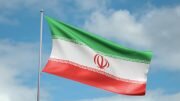The Strait of Hormuz and Norway
Although Norway attempts to stay away from the tensions in the Middle East, the question is how the probable clashes in the Middle East have and will impact Norway. In this article, I will give a brief explanation of the current situation around the Strait of Hormuz and how it affects Norway.
Four years ago, the world witnessed an agreement that raised hopes for a Middle East devoid of nuclear weapons. The Joint Comprehensive Plan of Action (JCPO), also known as the Iranian Nuclear Deal or simply, as the Iran Deal. All hopes thereof plummeted when President Donald Trump called the deal failure. He consequently announced that the US withdraws from the deal and reimpose sanctions.
The Iranian government responded furiously to these actions and measures. At the heat of verbal fights between two countries, the Iranian President threatened that if Iran can’t export oil, no other country in the world can either. He elaborated on his threat and clarified that since 30 per cent of the oil exports in the world passes through the Strait of Hormuz, Iran will close down one of the major routes for petroleum transport.
As the tension seems to escalate in the area, a disturbing clip from Fujairah Harbour has gone viral. The images show that some oil tankers are sabotaged. Later on, countries such as Saudi Arabia and the United Arab Emirates (UAE) has announced that some of the oil tankers belong to them. They further state that a Norwegian oil tanker (Andrea Victory) are among the attacked ships. The UAE authorities announce that the sabotage is a result of a terrorist attack. The Iranian government condemn the alleged terrorist attack and strongly reject any kind of connection to it.
How do these tensions affect Norway?
The tensions in the Middle East always has a direct impact on the price of oil. for example, the price of oil has increased after the attack. When Iran, as one of the major supplier of the oil, is removed from the market, the buyers will look for other suppliers. The Norwegian oil industry can take this opportunity to sell more. This means that with the increasing price of oil, the Norwegian government can save even more money.
On the other hand, tensions in the Middle East is synonymous with hazardous incidents for the global shipping companies – including the Norwegian ones. There are no specifics available of the number of Norwegian ships in the area, but there is evidence showing that the Middle East is one of the favourite areas for Norwegian Cruise ships as well as Norwegian oil tankers. Consequently, lack of safety in the area will jeopardize the presence of the Norwegian shipping companies as well. It seems that it is better for the Norwegian Government to employ cautious policies and measures to safeguard Norwegian people, commodities, assets etc. The history of the Middle East is full of similar tensions that do not have any winners, only losers.
References
A Norwegian Oil Tank Was Set In Fire
If Iran Can Not Export Oil, There Will Not Be Any Oil Exported From Iran.
Four ships ‘sabotaged’ in the Gulf of Oman amid tensions
This article is written by Zahra Moravvej for Norway Today.
© #Norway Today








